What makes an episode of television great is different from what makes a series great—as the general lack of overlap between this list and my top ten series of 2017 proves.
It can be hard to recommend a single episode—TV episodes generally gain their power from the context in which they exist. But several of these episodes, from the installments of Master of None and Girls to I Love Dick’s “A Short History of Weird Girls” and RuPaul’s Drag Race’s format-busting, lip-sync-focused finale, exist enough outside their respective shows that they can be enjoyed by anyone. Two episodes on the list, indeed, had viral impact far beyond their show’s core viewership: Vice News Tonight’s report on civil unrest in Charlottesville, Va., and Jimmy Kimmel’s opening monologue about his newborn son’s medical troubles both reached millions of viewers online with the sheer power of their emotion.
Like every episode on this list did in its own way, they cut through the clutter. That’s one common thread I see in a fairly diverse list of episodes. Each episode, here, deals in big, bold emotion to a degree that’s more vivid than other episodes of its type. Kimmel’s monologue is the absolute most involvingly painful version of a late-night monologue; Vice’s report on Charlottesville is the most ratcheted-up and tense version of an evening news report; Master of None’s episode here is the most open-hearted New York comedy; Better Call Saul’s episode is the most fraught courtroom drama. Represented here, too, is the most rageful aspect of the generally sunny-ish Girls, the most raw and human part of the ever-more-epic-scale Game of Thrones and the bleedingly vulnerable final monologue of The Leftovers. Even a show as sly and arch as Nathan for You bursted out of its frame with the human need to connect. In a year of big emotion everywhere we look—a painful year for many, filled with existential-feeling stresses on the global and individual scale—television’s ability to intimately portray the extremes of the heart, in empathy and with soul, was more vital than ever.
10. Girls, “American B—-,” HBO, 02/26/2017
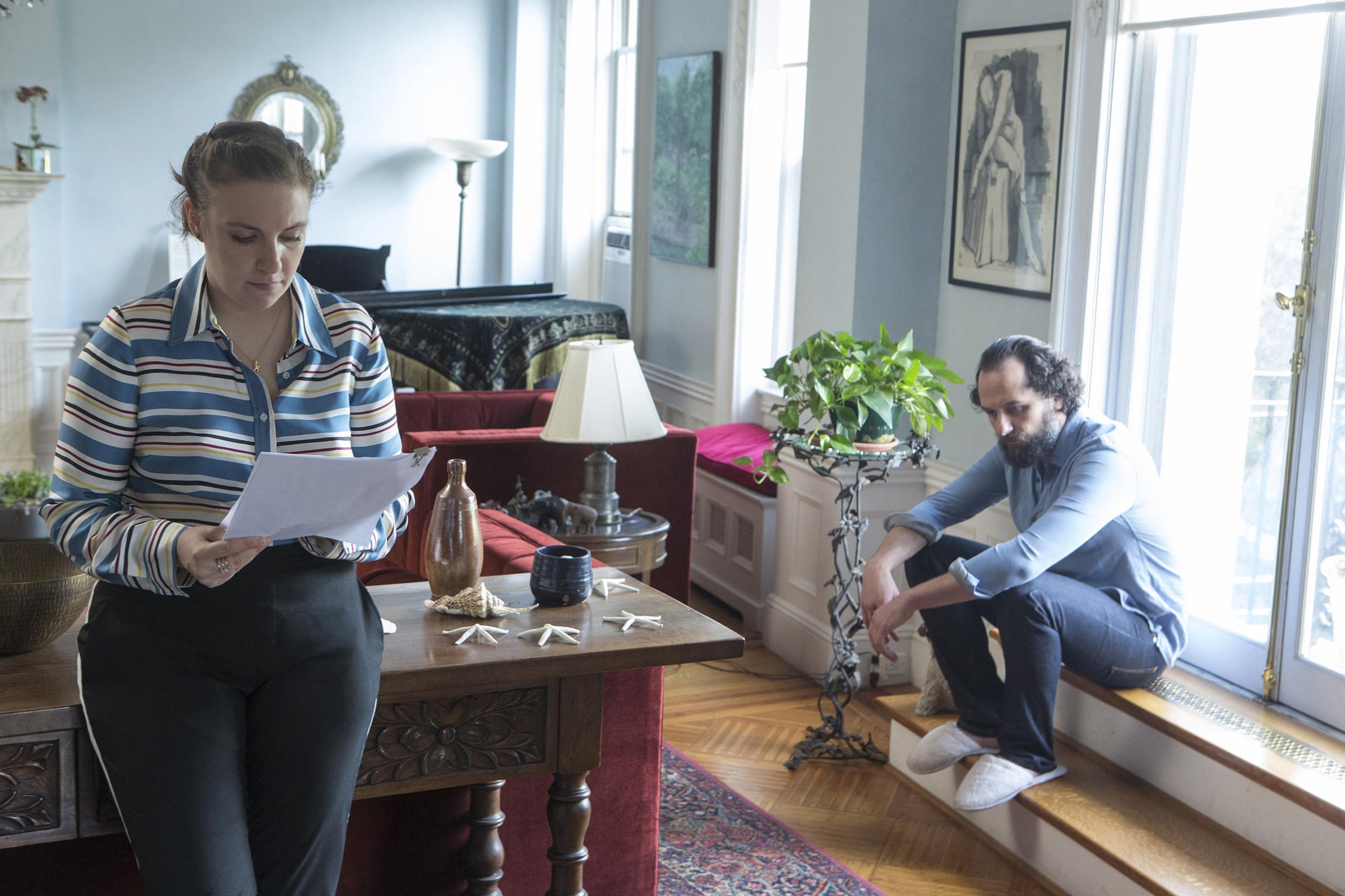
Amidst a final season that spent more time than I’d have liked unwinding character stories that never compelled that much to begin with (when did Elijah become a lead on this show?), Girls’s one unforgettable character ditched her friends to take part in a story whose complexities grow as it unfolds. “American B——,” which depicts a famous novelist (Matthew Rhys) inviting Hannah (Lena Dunham) to his apartment to discuss why she so unfairly maligned him in print as someone who’s coerced young women into sex, wins her over with his charm and then pulls out his penis to show her. This depiction of an abuse of power could be “about” Bill Cosby, or Louis C.K., or Harvey Weinstein, or men whose names we haven’t yet learned to associate with misdeeds. It’s also, crucially, about Hannah, a young woman deeply aware of her own power yet, in the moment, trapped in her tormentor’s apartment, unable to disentangle herself from something she knows she doesn’t want—right? The ways in which abuse of power play out on the micro scale were imagined vividly and painfully in this episode, whose own power dynamic keeps shifting—we often think Hannah has the upper hand, only to watch it slip away from her again.
And yet she’s the one through whose perspective we see it, and we sense that she, someday, will find a way to write about it all. There’s a throbbing anger an inch under the civil debate here, something that made it electrifying to watch. It was a story told from the perspective of victim rather than perpetrator—something we need more of—and done so in a manner that’s hard to forget.
9. Nathan for You, “Finding Frances,” Comedy Central, 11/09/2017
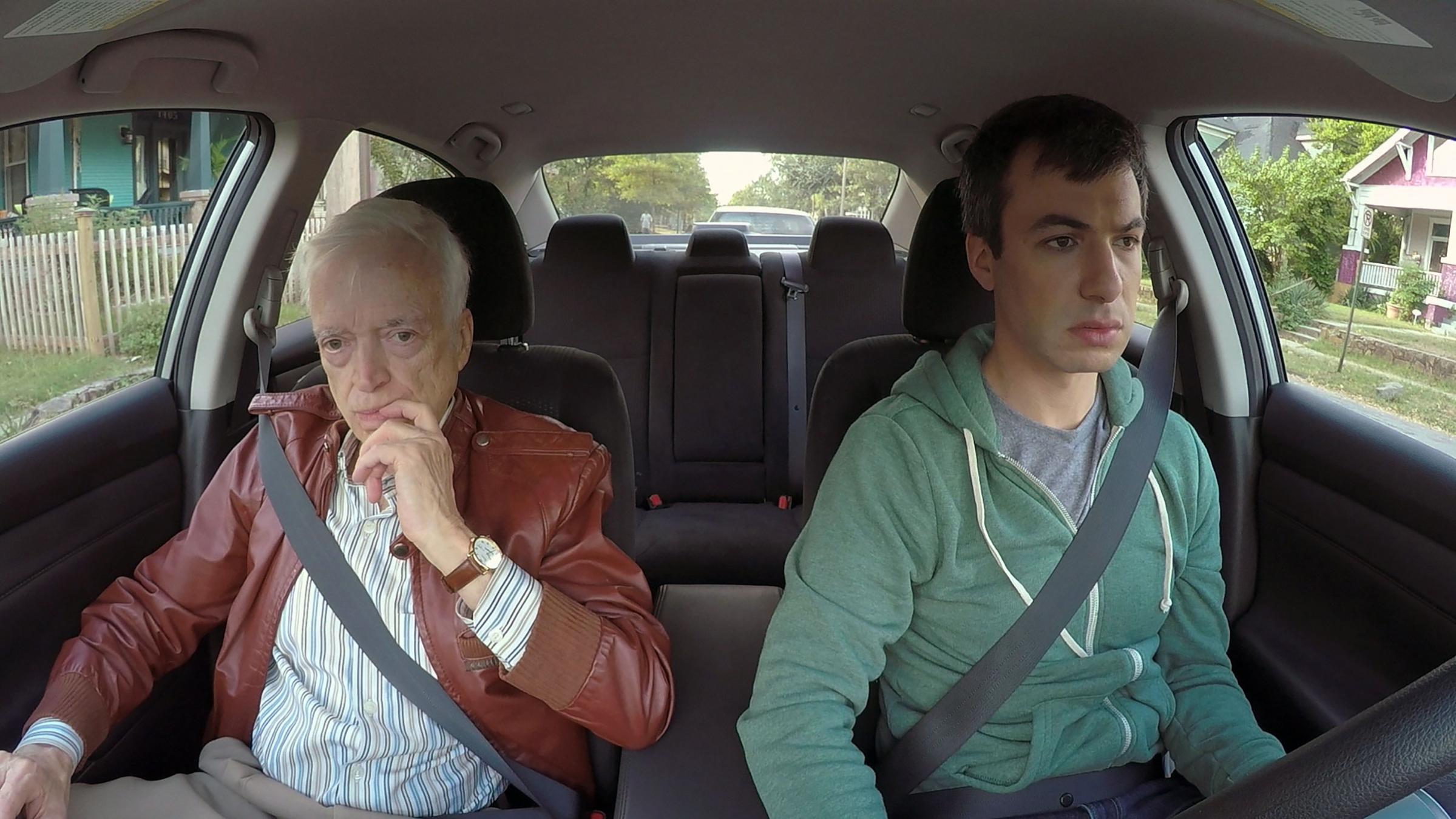
The Comedy Central cult hit, about a would-be entrepreneur attempting to help small business owners through painfully literal means, has always been in part about our need to connect; people buy into host Nathan Fielder’s schemes because it’s nice to believe that someone wants to help, even if how they’d help is so plainly, well, unhelpful. This two-hour installment pushed that commitment to the bit further than ever before, in an episode characterized by twisted altruism—helping a small-time actor who mainly works as a comically unfit “Bill Gates impersonator” find his onetime, decades-ago love, a mission that shouldn’t have been undertaken to begin with. Fielder knows this, I think, and so too does our actor, who’s built up his romantic past into the stuff of legend to dodge his present; meanwhile, Fielder is lost in his own fantasy relationship, with a sex worker whom he pays to simulate the flirting and banter that couples do. There’s something painful and lovely about this show at its best, as Fielder’s sheer innocent brio keeps knocking away at the impossibility of succeeding in American life. That conception of success the show’s obsessed with includes winning in the economy, but it also includes finding love. This episode’s frank, real depiction of just how hard that can be made for oddly emotional viewing.
8. Better Call Saul, “Chicanery,” AMC, 05/08/2017
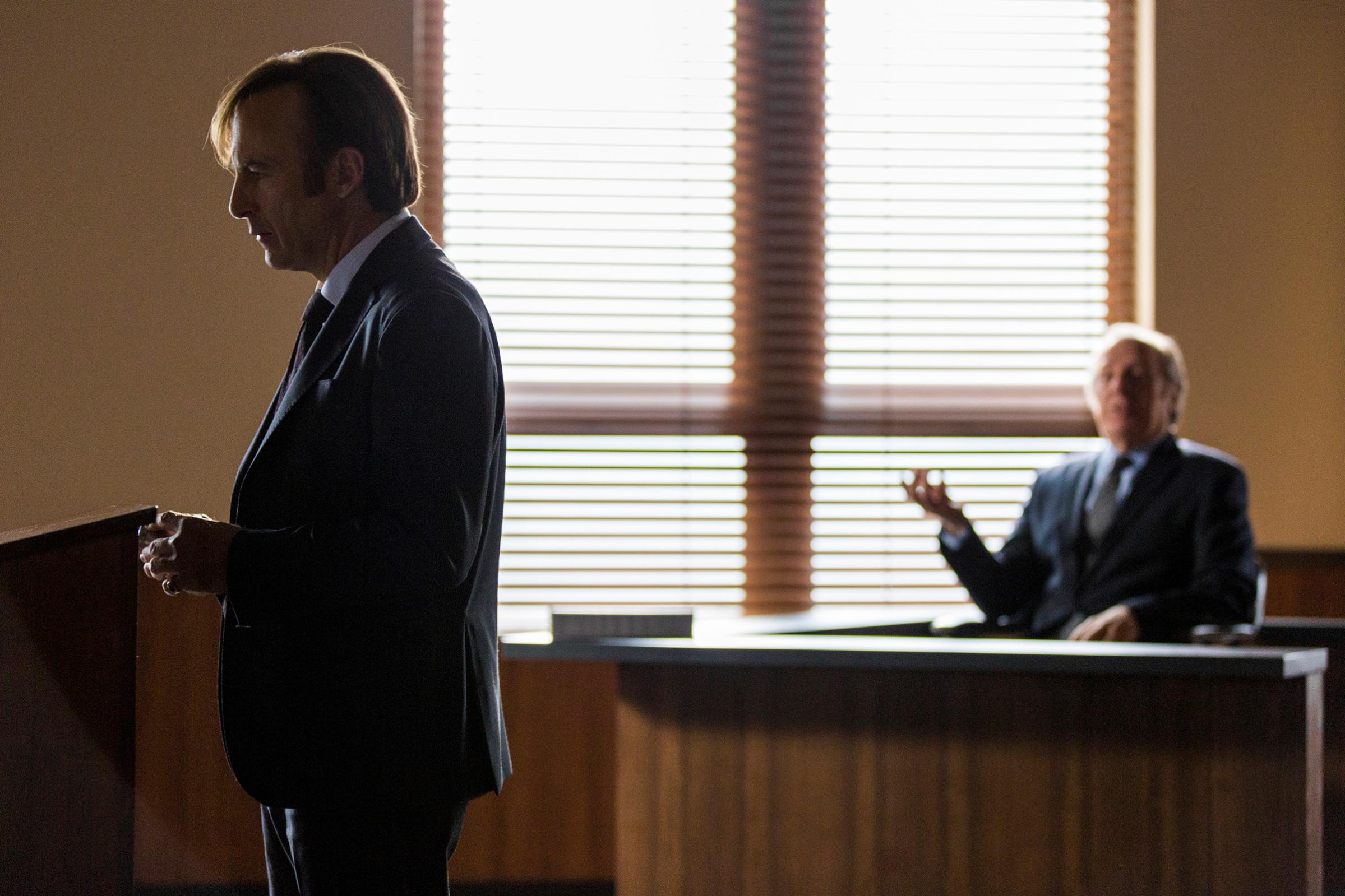
Better Call Saul’s particular gift for moral ambiguity hit a high point with this episode, in which two characters’ face-off leaves the viewer sympathetic for, and skeptical of, both. During a bar association hearing that could end the career of crooked lawyer Jimmy (Bob Odenkirk), his brother Chuck (Michael McKean) seems at first coolly assured; the purportedly ill Chuck loses his balance, though, when Jimmy reveals a ploy that exposes his malady to be psychosomatic. The back-and-forth between two estranged brothers, each bringing a sense of joy to their determination to ruin the life of the other, is rivetingly clever. It’s also heartbreaking, revealing yet another missed opportunity for Jimmy to be the good, ethical person he’s coming to realize he’ll never be.
7. Game of Thrones, “The Queen’s Justice,” HBO, 07/30/2017
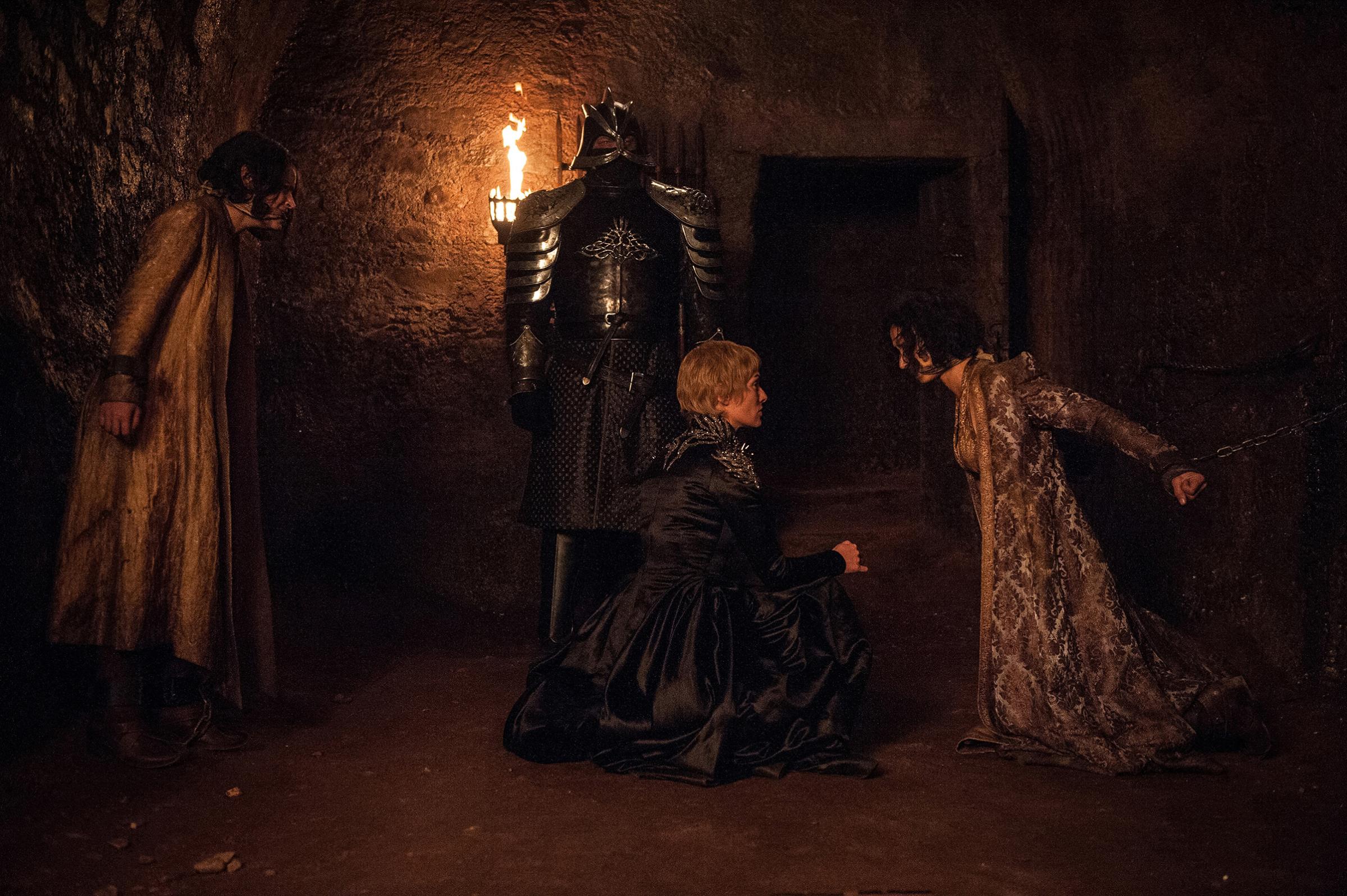
Lena Headey delivered perhaps her best work yet in an episode that stood as a moment of contemplation in a fiery season. Cersei may not be the central character on an ensemble show, but she yearns to hold the show’s spotlight by holding onto her throne, and Headey—tormenting her prisoners, brazenly flaunting her incestuous relationship—sold Cersei’s desperation, as her familiar world keeps on melting away. Cersei’s doomed fate, to reign only after traumas have riven her world to the point of insanity, never felt more clearly drawn in all their complexities. Elsewhere, the departure of Olenna (Diana Rigg) gave the season its most riveting character-driven moment, the likes of which I hope the show makes time for in its final season.
6. I Love Dick, “A Short History of Weird Girls,” Amazon, 05/12/2017
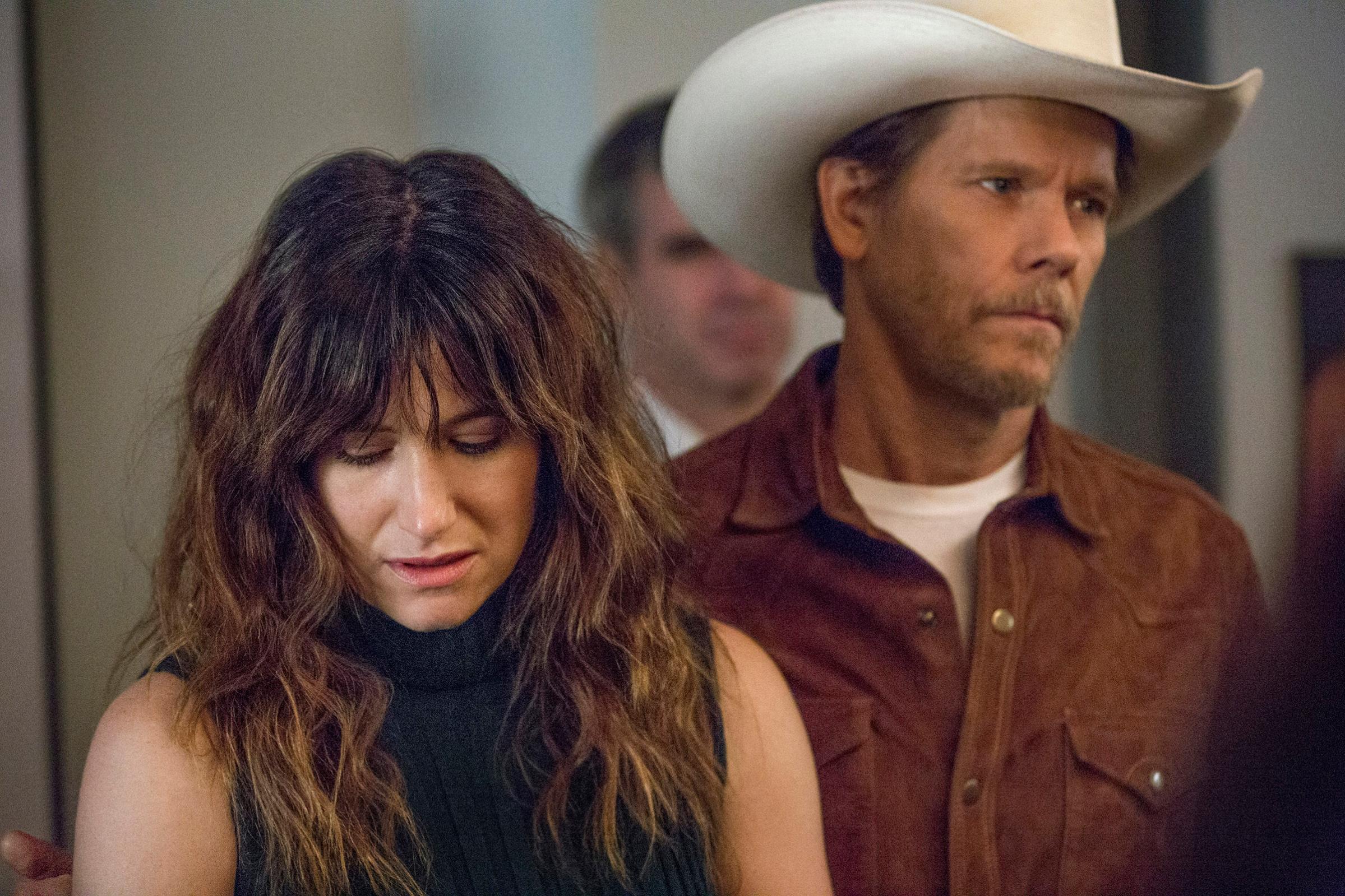
Written by the playwrights Annie Baker and Heidi Schreck and directed by show co-creator Jill Soloway (best known for Transparent), this episode is the beneficiary of multiple gifted artists. Little wonder that it’s so easily able to deliver us into the points-of-view of so many complicated women. In this episode, the show’s conceit of Chris (Kathryn Hahn) writing letters to Dick (Kevin Bacon) comes to be mimicked by other women of Marfa, Tex.; various artists and curators deliver fascinating stories from their own pasts, seeking an answer as to why, now, they want what they want. Not all have it figured out—or are close—but it’s the attempt that matters, as each woman gets closer to realizing her artistic goals. “Dear Dick,” an art historian played by India Menuez intones in the episode’s final moments, “we are not far from your doorstep.” This episode’s belief in the power of radical self-knowledge felt affirming and exciting.
5. RuPaul’s Drag Race, “Grand Finale,” VH1, 06/23/2017
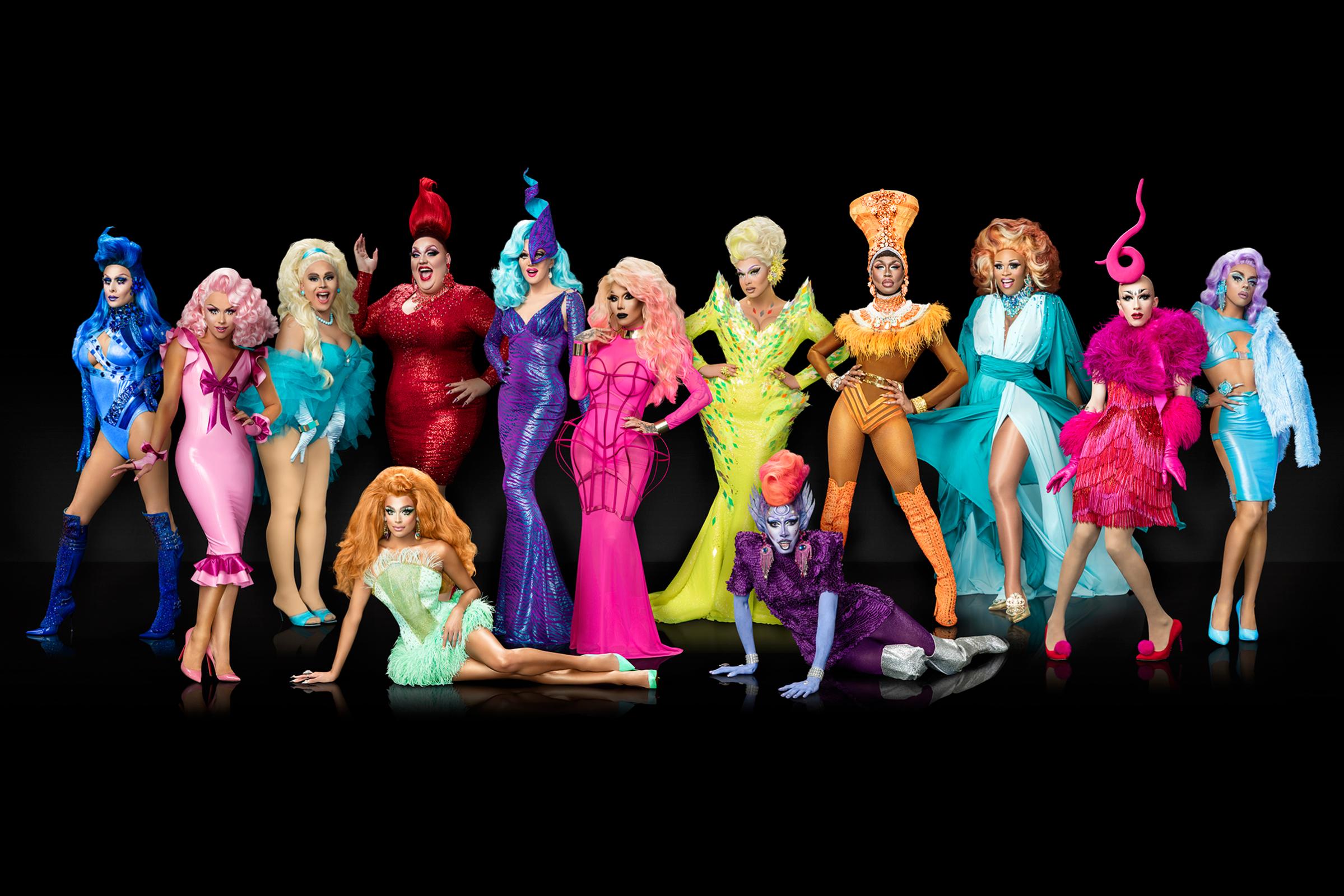
The most purely joyful moments on television in 2017 came from this hour, in which four skillful drag performers went through their paces in a series of lip-sync performances. Lip-synching—delivering a fully-formed artistic reinterpretation of an established pop hit while mouthing the lyrics—has been part of this competition show since its inception, but it seemed to hit a new high as competitors hit their dance cues, tossed off their wigs, and poured rose petals from their opera gloves. (That last moment came via eventual winner Sasha Velour, a drag queen who secured her win thanks to American Beauty quantities of red flora in her “So Emotional” performance.) Honoring practitioners at the very top of their particular game, this hour felt like the best of sports—what was happening revealed human mastery. But the willingness to go on and fight for this gender-bending art in a political environment in which it might seem deeply beside the point made the hour resonate with pure electricity.
4. Jimmy Kimmel Live, May 1 monologue, ABC, 05/01/2017
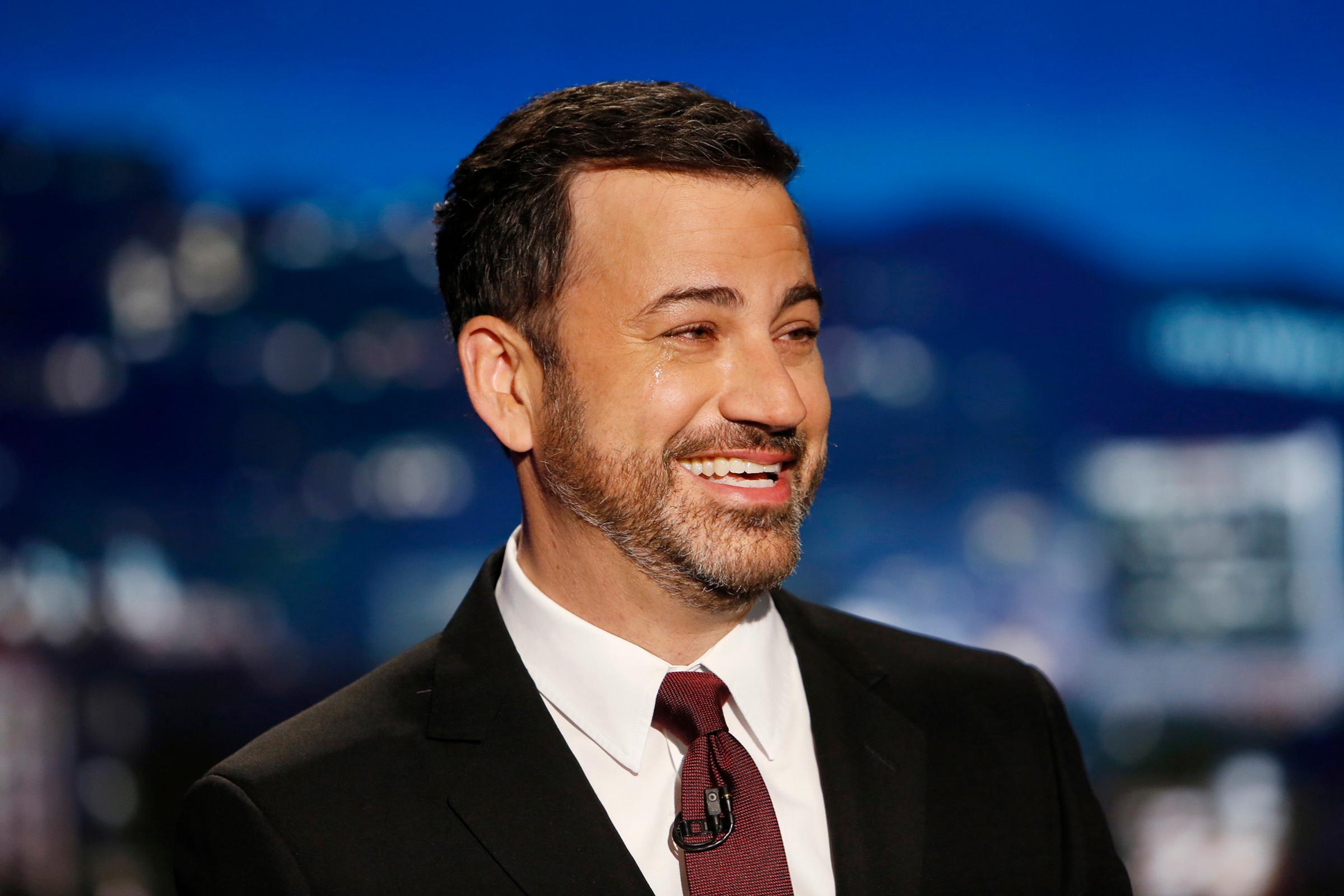
There was something different about this episode from its earliest moments. Kimmel, welcoming his audience, is audibly emotional to the point that it’s unclear if he can go on; he does. Kimmel’s story about the medical crisis of his infant son, born with a heart defect, is one familiar to many families, as the host himself acknowledges; what elevates it is the power of its telling. Kimmel harnesses the voltage of a live audience to build a painful tension—not built around the outcome, as Billy was thankfully fine, but around Kimmel’s own ability to tell the story without falling apart. He stops short of thanking the surgeon in detail, for instance, because he does not feel able. Whether political or not, much of late night right now is shot through with an aggressive engagement with the “news” as an abstract force—the Daily Show-inflected style of most commentators, or the by now grimly forced jollity of the apolitical entertainer. By contrast, Kimmel’s discussion of his son’s struggle came from a stunningly real place, as did his subsequent advocacy on behalf of children with pre-existing medical conditions. Kimmel emerged as a potent and powerful advocate this year precisely because he was speaking from a place of almost unbearable emotion; he was a host who simply had to speak out, and that need gave what he said real voltage.
3. Master of None, “New York, I Love You,” Netflix, 05/12/2017
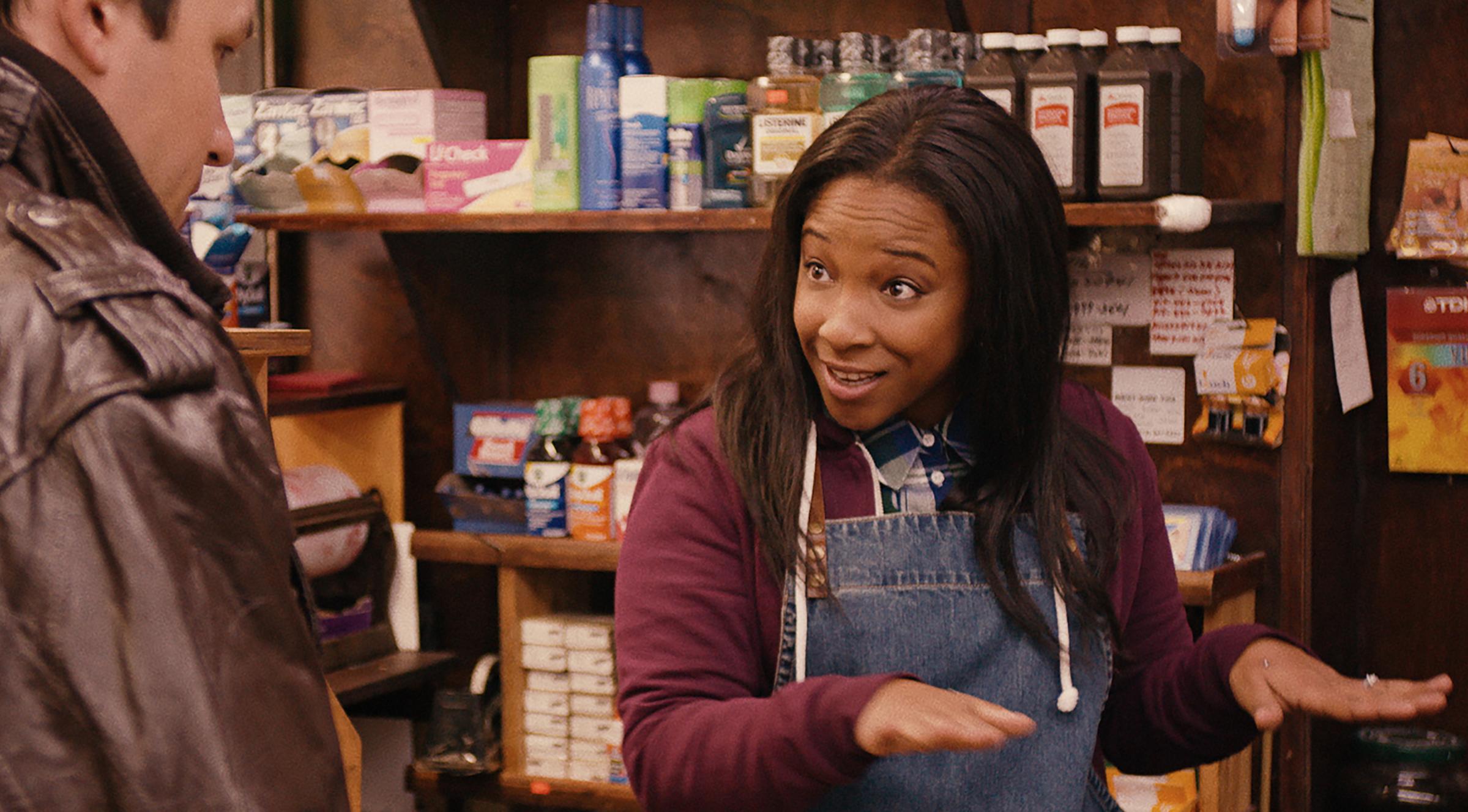
The second season of Master of None lost its way as it wended on through an implausible love story—but there were moments throughout that delivered about as much pleasure as any show did in 2017. This episode, in which various short stories about New Yorkers unfold, seemed like an elegant summation of the whole idea of Master of None, a show about the wonder of being in love and the sheer volume of types of experience one could have in life. Here, we skip from a doorman whose tenants entangle him in their private lives to a deaf bodega clerk who uses ASL to speak frankly about her sexual needs to a Burundian cab driver who just wants a night out. Throughout the run of Master of None, Dev (Aziz Ansari) is indecisive, in part because making a decision means closing off other potential stories. Here, anxiety over missed opportunities gives way to a nearly impossible-seeming openness, where new stories could begin anytime. Best of all, the episode unfolds with a generosity that can’t be faked; the New Yorkers we meet get, in mere minutes of screen time, fully formed lives.
2. The Leftovers, “The Book of Nora,” HBO, 06/04/2017
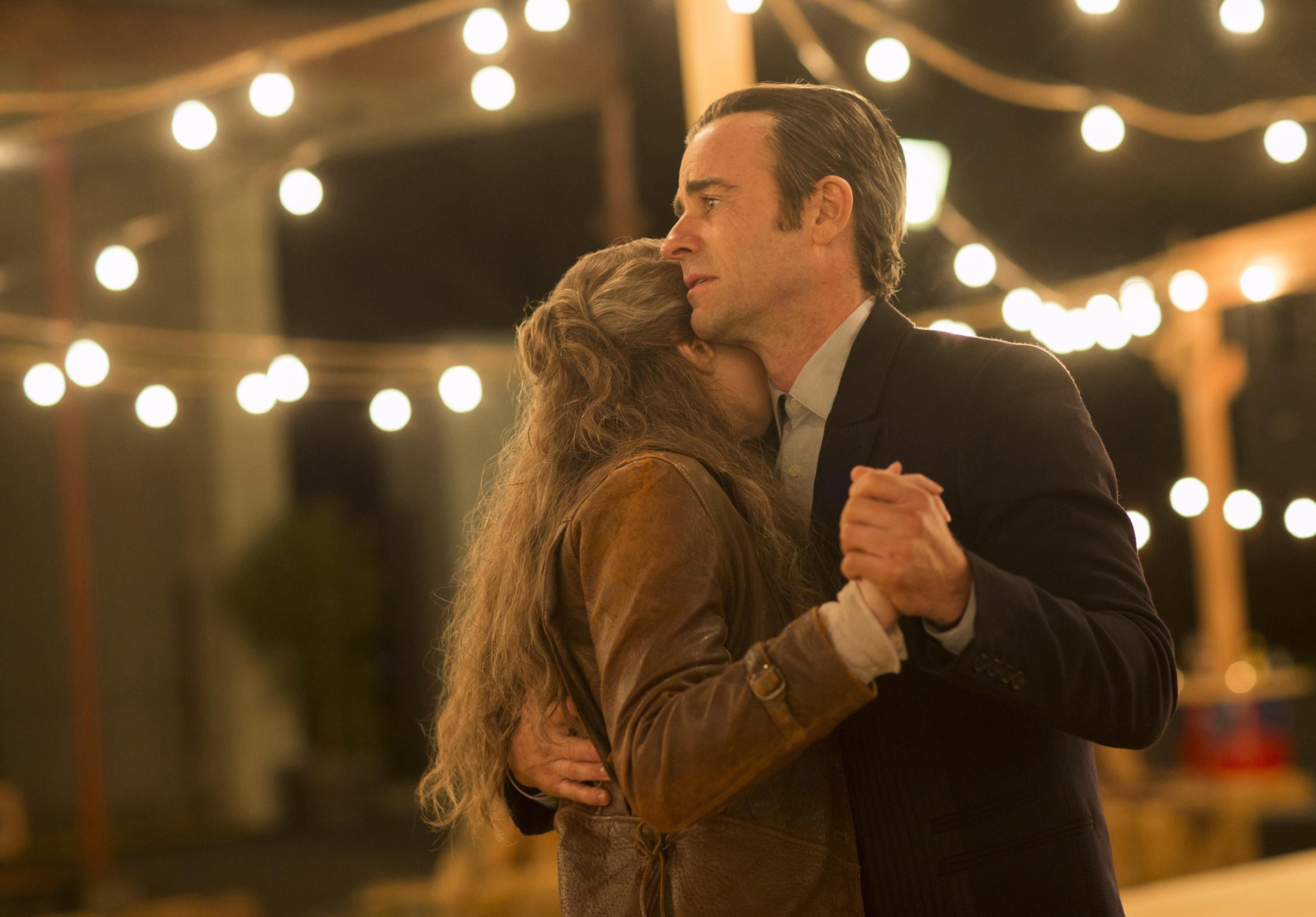
Finales exist under almost unimaginable pressure from viewers who demand that the stories and characters they’ve loved come in for a satisfying landing. And a show premised upon the anticlimactic cutting-short of millions of lives, with no gratifying story to tell about their vanishing, did it about as well as it has ever been done. In the final installment of The Leftovers, Carrie Coon’s Nora attempts to transition over to a parallel world, one in which her vanished family is said to be alive; back in our world and found by her onetime love (Justin Theroux) decades later, Nora tells an enrapturing story (performed skillfully by breakout star Coon) about a world in which only two percent of the population had survived a cataclysm, a world in which people, rather than grieving, were deeply grateful to be alive. It was a world in which she had no place. Deep ambiguity about whether or not her journey there and back actually happened—I believe her—haunts a story whose bones are strong and true: A grieving Nora didn’t feel at home in the world, and after a long journey, she does, and is ready to be a part of it once more. Long after the debate over the episode’s ambiguities has faded, that certainty will root the show in memory.
1. Vice News Tonight, “Charlottesville: Race and Terror,” HBO, 08/14/2017
Sourced and fearless reporter Elle Reeve had a front-row seat to the dark trajectory of the white supremacist protests in Charlottesville, Va., that led to the death of a counterprotestor. The 22-minute episode of a show that hadn’t previously found its place went viral, and for good reason; it was a striking look inside the mentality of a growing and emboldened faction of the American public whose perspective and whose methods can be difficult to cover in the traditional terms to which TV news is accustomed. On HBO’s edgier newscast, passed around online, this revived sort of activism were allowed the time and space to express themselves in full rancid flower through Reeve’s first-person perspective; at episode’s end, white supremacist Christopher Cantwell shows Reeve all the weapons he carries on his person in order to carry out his violent mission. Reeve, unafraid to show real emotion, looks like one of TV news’s rising stars. One hopes the viral response to her aggressive approac — one that works hard and without comforting platitudes or euphemisms to bring into the light the views of “both sides” of an overheated national scene—helps inform coverage elsewhere.
More Must-Reads from TIME
- L.A. Fires Show Reality of 1.5°C of Warming
- Home Losses From L.A. Fires Hasten ‘An Uninsurable Future’
- The Women Refusing to Participate in Trump’s Economy
- Bad Bunny On Heartbreak and New Album
- How to Dress Warmly for Cold Weather
- We’re Lucky to Have Been Alive in the Age of David Lynch
- The Motivational Trick That Makes You Exercise Harder
- Column: No One Won The War in Gaza
Contact us at letters@time.com